Some would say “I’d rather be good than lucky.” Others say “I’d rather be lucky than good.” I’d rather say “I’m good, now how’s about a little of that luck y’all keep talking about?” I think I need to buy a Lottery Ticket right about now because, despite my last post, not all diesels leak oil. Well, at least some of them don’t leak oil anymore…
Once I finally got the engine mounts replaced, I was able to reinstall all the other things that sat in my way of once again sparking up the good ‘ol Perkins 4-108 for a test run. I got the new Seakamp heat exchanger installed and cut new replacement hoses for all the connections to the fresh, and raw water cooling systems. I rebuilt the raw water pump with a new shaft and new impeller, and a new paper gasket (yes, I’m as surprised as you that the paper gasket didn’t leak). I reinstalled the oil filter bracket and the oil lines, installed a new Perkins oil filter, reconnected the wet exhaust system, and filled the crankcase with nearly 5.5 quarts of oil (after, of course running the engine and frequently checking the level to be sure…)
K & N Air Filter
I also purchased a K&N air filter to replace the rusty old busted up piece of crap that snapped off in my hands when I tried to remove it. I think the new air filter was the biggest improvement. The old factory “bug screen” that you see at the top of this post was only small enough to keep my thumb from getting sucked into the engine intake. Even more so, since it rusted out and broke loose. It also has a hose connection to the valve cover that’s supposed to draw off crankcase pressure and return it back to the intake manifold. Well, if the vacuum from the intake manifold pulls more air through the rusty bug screen than it does through the valve cover, then, that pressure has to go somewhere else. Usually, that pressure finds its way out the rear main oil seal, or the oil pan gasket, or the valve cover gasket, or the front timing cover seal, etc.
Well, after installing the new K&N RC-7032 air filter (and the 5/8″ hose fitting to the valve cover), the engine seems to be running a bit quieter (as far as diesel engines go), and it also appears to be drawing off some of that pesky crankcase pressure that is rumored to be the cause of most Perkins oil leaks.
Heat Exchanger
With the new heat exchanger (and factory supplied zinc fitting already installed), I replaced the top vent with a simple radiator drain cock for venting the engine coolant. This handy little feature proved its $5 worth once we filled the engine with antifreeze and ran it up to operating temperature. As the [fresh] water pump attempts to push coolant inside of a system that’s been drained below the level of the thermostat, an air bubble is likely to form inside of the engine block, causing a potential overheating situation when coolant no longer continues to circulate. This vent cock helps alleviate that by allowing one to manually evacuate air from the system once the engine is up to operating temperature and the thermostat opens.
Once we got everything back together, fired up the engine and ran it for 15 minutes or so, believe me, it was a “heated” moment (excuse the pun) between Jeni and me when the engine coolant gauge hit 190f before the thermostat finally opened. I kept telling her “it’s ok, give it another minute.” Once the thermostat did open, the coolant began to circulate. I vented the heat exchanger one last time, the temperature gauge dropped like a rock to 155f and stuck there as if it were glued.
Regarding oil leaks, as we were running the engine, checking the oil and coolant levels, and generally sitting around with fingers crossed waiting for her to come up to operating temperature I noticed a leak at the front of the oil pan just beneath the lower pulley. So I wiped it clean, gave two bolts on the oil pan and two bolts on the timing cover a little clockwise twist. Viola, no more oil leaks. Not even under the rear main seal after another 30 minutes of runtime. At least for now…
So I guess you can’t believe everything you read on the internet about diesel engines always leaking oil. Hell, you’re reading this, and it’s on the internet, and it’s about (not) leaky diesel engines. Take it with a grain of salt. Now that the engine is running, the sun is shining, and all is once again good in the world…
Well, two out of three ain’t bad.

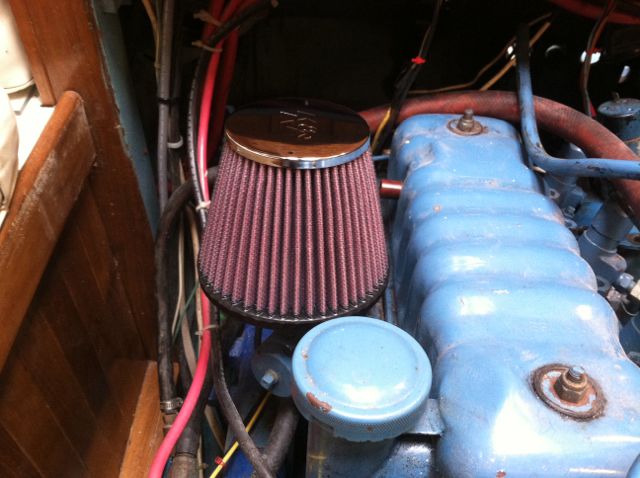
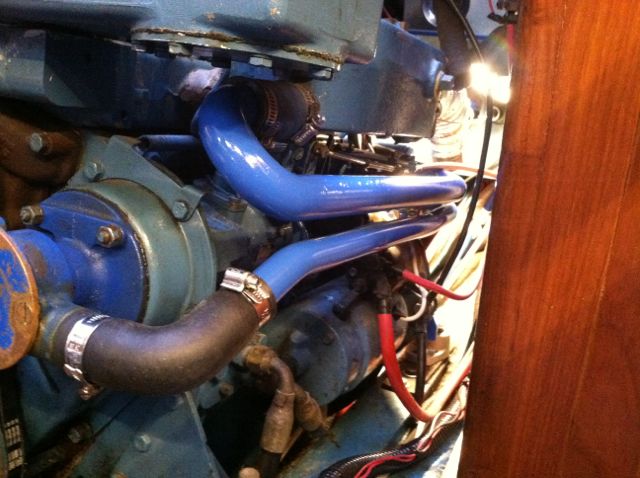
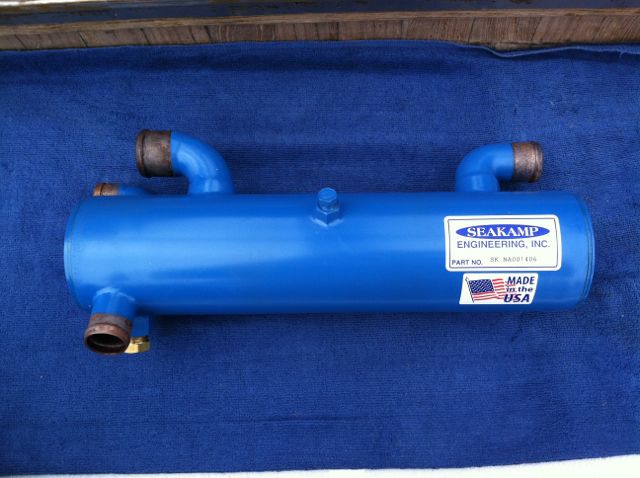
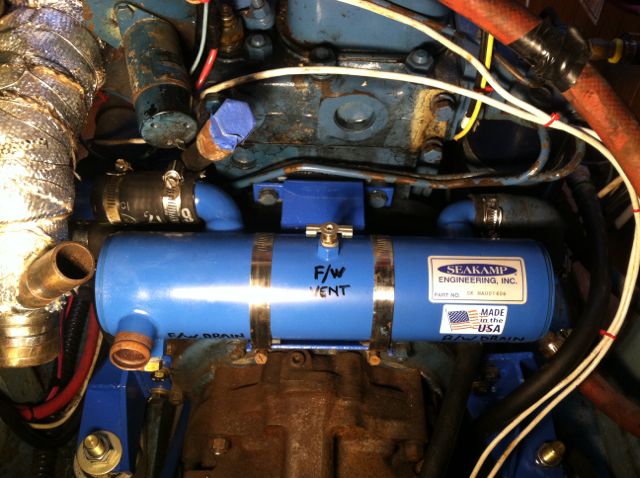
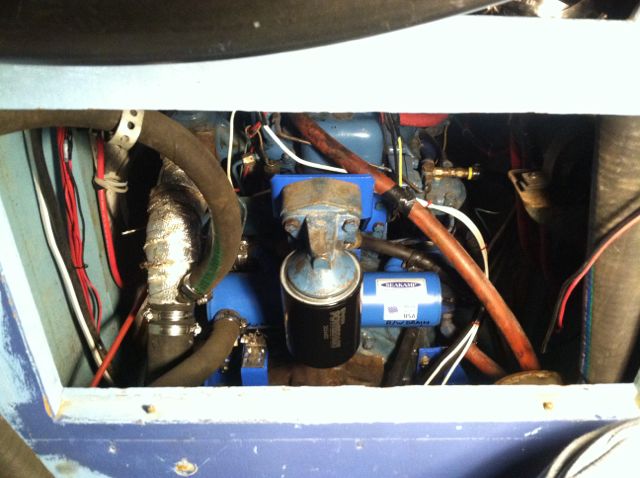
Good job Rich! Time to go for a spin!